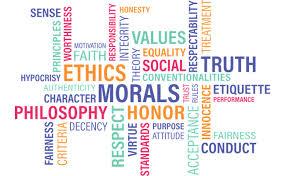Shaping your personal values
Your values will not be fixed; they change throughout your life. While this process happens naturally, you can proactively decide to shape your values.
- Confront your values to actual experiences. When you notice that you live differently to your value, consider whether your value really reflects the way you want to behave in the world.
- Develop self-awareness. Accept that sometimes your values are at fault and you may have to replace it with a better value.
- Actively question your values. You don't need to wait until experience contradicts your values. You can challenge your values at any time at a more abstract level.
The goal is to live a life of self-discovery.
508
2.26K reads
CURATED FROM
IDEAS CURATED BY
The idea is part of this collection:
Learn more about personaldevelopment with this collection
How to strengthen your willpower
How to overcome temptation and distractions
The role of motivation in willpower
Related collections
Similar ideas to Shaping your personal values
Live Your Values and Use Them
- Use Your Values for Goal Setting. For each of your values, make a list of things you could do to put those values into practice. For example, if you wrote “Learning,” you could go back to college and do that degree you’ve always dreamed of.
- Make Decisions According ...
Discovering Your Personal Values
Many adopt values from other pre-packaged sources, like a religion, culture, or legal system. But, by adopting a value system without reflection, you make way for personal values that cause conflict between your perceived beliefs and the actions you take.
To find your own values:
Live Your Personal Values
Your values serve as an ‘inner GPS system’ that guides you through life, helping you make the right decisions and keeping you on track.
Knowing and living your values will lead to a sense of balance, confidence and fulfillment.
Read & Learn
20x Faster
without
deepstash
with
deepstash
with
deepstash
Personalized microlearning
—
100+ Learning Journeys
—
Access to 200,000+ ideas
—
Access to the mobile app
—
Unlimited idea saving
—
—
Unlimited history
—
—
Unlimited listening to ideas
—
—
Downloading & offline access
—
—
Supercharge your mind with one idea per day
Enter your email and spend 1 minute every day to learn something new.
I agree to receive email updates
